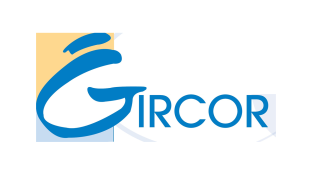Université de Lorraine is committed to supervising limited research using animals. In this regard, it is a member of the Interprofessional reflection and communication group on research (GIRCOR) which seeks to provide clear, transparent information about animal research to enable the public to fully understand the reasons behind it. The University has also signed up to the Transparency Charter. Experiments using animals at UL are conducted under the oversight of the ACBS (the campus biomedical services unit for animal welfare) and the PEA (for aquatic species). Both these technical facilities meet the highest European standards to ensure an ethical, up-to-date and operational approach that complies with the regulatory requirements (the principles of the 3 Rs) for the very best monitoring of animal welfare (Refinement). At the same time, UL is working on other alternatives (Replacement) that do not require the use of animals, as well as methods to decrease the number of animals (Reduction) by:
- developing innovative procedures to minimise and optimise the use of animals (non-invasive imaging or evaluation equipment);
- promoting the evaluation of active molecules or future drug candidates by modelling approaches (in silico, artificial intelligence, etc.) for predicting effects;
- developing molecular approaches (OMICS) from human clinical research;
- supporting projects that replace whole organisms or organs (cell cultures, organ-on-a-chip technologies).
Facilities focused on animal welfare
The Animal Welfare Body (SBEA) of the campus biomedical services unit for animal welfare (ACBS) and the Experimental Platform in Aquaculture (PEA) are regulatory bodies under Decree 2013-118 (Art. R. 214-103). The team making them up comprises a manager, lead veterinarian and representatives of the various approved user institutions. Each SBEA ensures strict compliance in practice with the applicable regulations on animal ethics by:
- making sure all research projects bear a project authorisation number;
- supporting users in setting up and implementing testing procedures;
- auditing and monitoring projects that have been approved by the Ministries of National Education, Higher Education, Research and Innovation after consulting with the relevant ethics committee (CELMEA);
- advising experimenters about animal ethics;
LORRAINE ANIMAL WELFARE AND ETHICAL REVIEW BODY
In the same way as all ethics committees in France, the CELMEA is based on France’s National Charter on the Ethics of Animal Experimentation, drafted by the National Committee for Consideration of Ethics in Animal Experimentation (CNREEA) as a reference for experimenters, their teams, institutions and ethics committees. This national charter promotes our duty to respect animals and maintains that use of animal research incurs the moral responsibility of the individuals and institutions involved.
The role, membership and remit of the ethics committees are defined in this charter and specified in its annex.
The Lorraine Animal Welfare and Ethical Review Body (CELMEA) bears the number 66. The action of regional animal welfare and ethical review bodies is grounded in ethical principles such as they are set out in the “Charter for ethical experimentation on living animals”.
Regional animal welfare and ethical review bodies are tasked with issuing a reasoned ethical opinion, on the experimental protocols which experimenters submit to it. They play an advisory role and the Ministry of Higher Education, Research and Innovation decides whether or not to grant a project authorisation on the grounds of their opinions. Their remit entails ascertaining the justified basis for projects, not least by assessing the expected benefit of the research relative to what the animal will be put through. They thus provide a guarantee to demonstrate the merits of a research project which involves animal testing, and for the implementation of procedures allowing the best possible monitoring of animal welfare.
To seek the opinion of the review bodies, it is necessary to carefully complete the APAFIS referral document. This document helps experimenters to factor in-depth scientific and ethical considerations into their research project from the outset.






































 Julien Vasseur est responsable d’une équipe de 30 personnes en charge des travaux neufs du domaine électrique ainsi que les essais avant mise en service.
Julien Vasseur est responsable d’une équipe de 30 personnes en charge des travaux neufs du domaine électrique ainsi que les essais avant mise en service. Noureddine Takorabet, Professeur des universités, enseigne à l’ENSEM. Il est, depuis 2018, directeur du GREEN, laboratoire de recherche de l’Université de Lorraine.
Noureddine Takorabet, Professeur des universités, enseigne à l’ENSEM. Il est, depuis 2018, directeur du GREEN, laboratoire de recherche de l’Université de Lorraine.